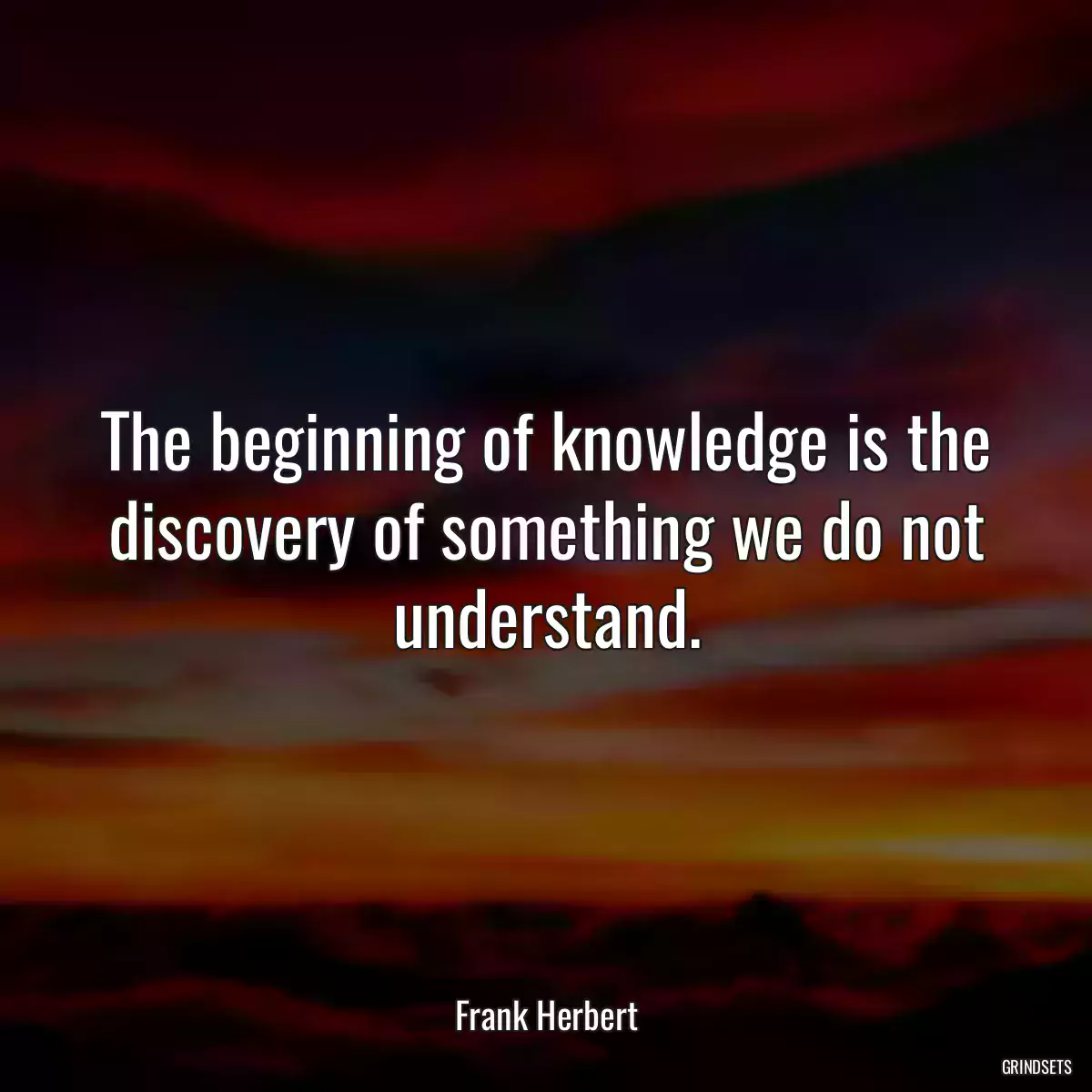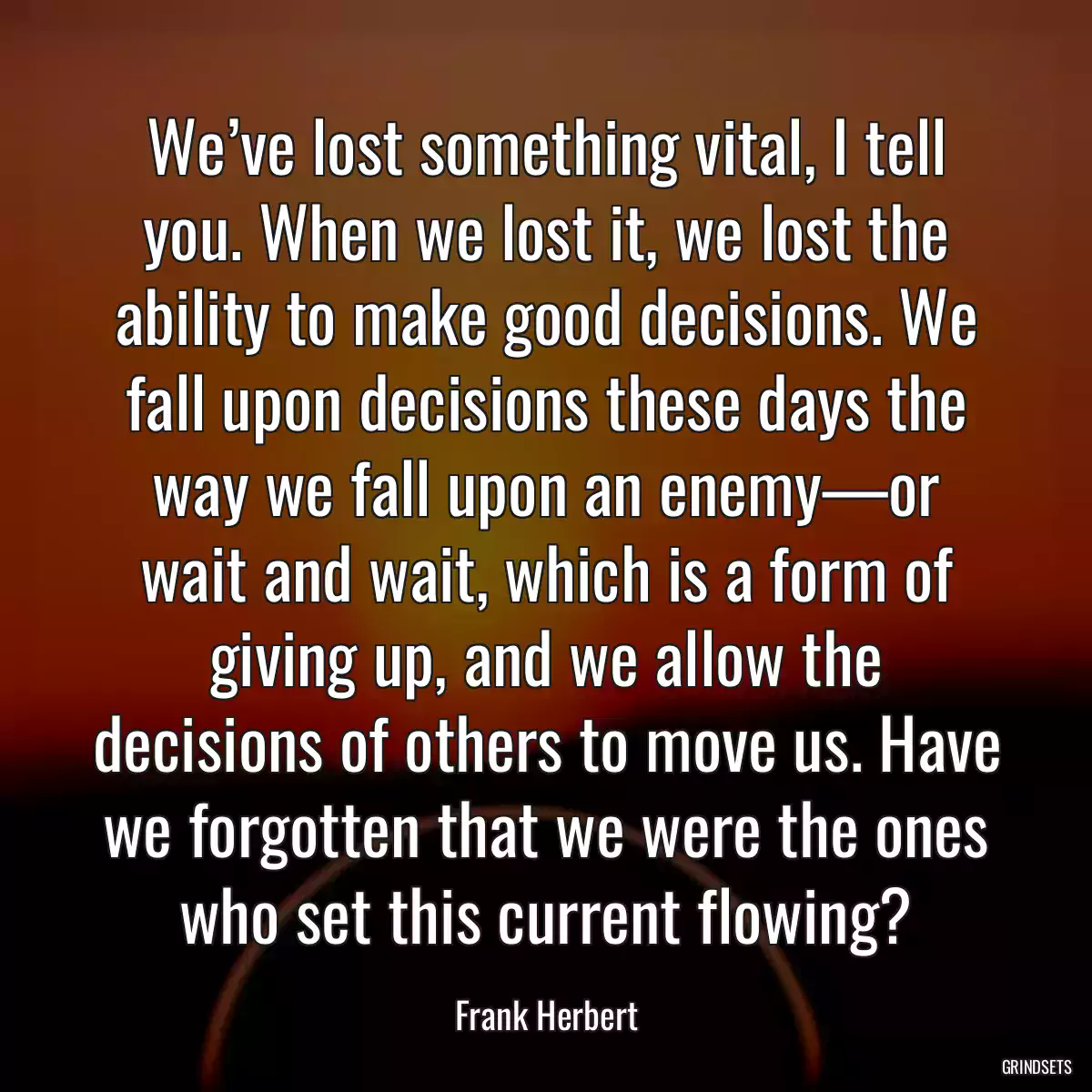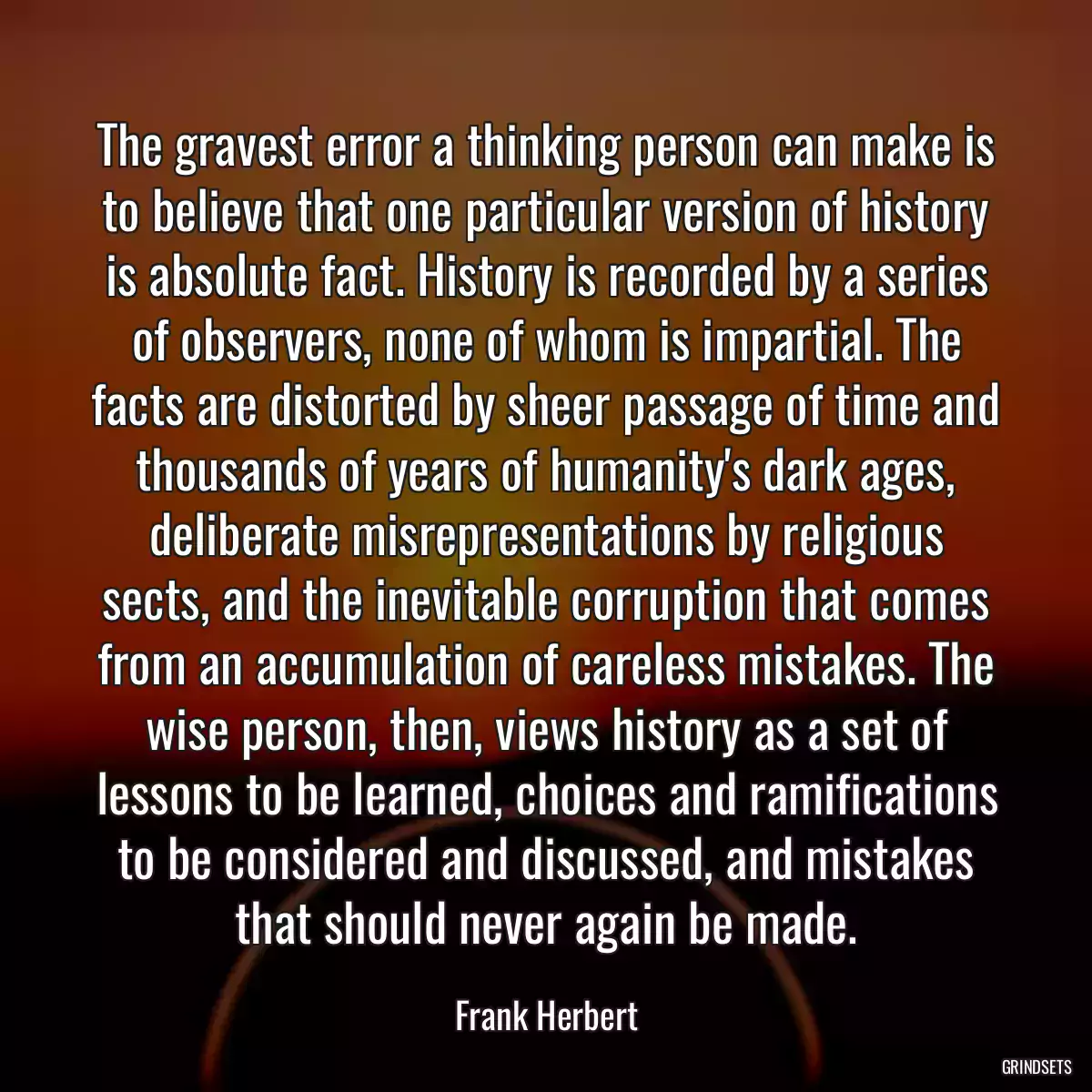
Quotes Frank Herbert
Find dozens of Frank Herbert with images to copy and share.

Jessica stopped beside him, said: 'What delicious abandon in the sleep of a child.' He spoke mechanically: 'If only adults could relax like that.' 'Yes.' 'Where do we lose it?' he murmured. 'We do, indeed, lose something,' she said.
Ready comprehension is often a knee-jerk response and the most dangerous form of understanding. It blinks an opaque screen over your ability to learn. The judgmental precedents of law function that way, littering your path with dead ends. Be warned. Understand nothing. All comprehension is temporary.
I give you the chameleon, whose ability to blend itself into the background tells you all you need to know about the roots of ecology and the foundations of a personal identity
You may also like
Education is no substitute for intelligence. That elusive quality is defined only in part by puzzle-solving ability. It is in the creation of new puzzles reflecting what your senses report that you round out the definitions.
I now believe that evolution, or deevolution, never ends short of death, that no society has ever achieved an absolute pinnacle, that all humans are not created equal. In fact, I believe attempts to create some abstract equalization create a morass of injustices that rebound on the equalizers. Equal justice and equal opportunity are ideals we should seek, but we should recognize that humans administer the ideals and that humans do not have equal ability.
The most important survival ability for any life form is the ability to change.
Survival is the ability to swim in strange water.
I am like a person whose hands were kept numb, without sensation from the first moment of awareness - until one day the ability to feel is forced into them. And I say "Look! I have no hands!" But the people all around me say: "What are hands?

We’ve lost something vital, I tell you. When we lost it, we lost the ability to make good decisions. We fall upon decisions these days the way we fall upon an enemy—or wait and wait, which is a form of giving up, and we allow the decisions of others to move us. Have we forgotten that we were the ones who set this current flowing?
I'm the well-trained fruit tree. Full of well-trained feelings and abilities and all of them grafted onto me
What are you, child, that you need time to learn about yourself?
Absolute power does not corrupt absolutely, absolute power attracts the corruptible.
The mistakes (of leaders) are amplified by the numbers who follow them without question. Charismatic leaders tend to build up followings, power structures and these power structures tend to be taken over by people who are corruptible. I don't think that the old saw about 'power corrupts and absolute power corrupts absolutely' is accurate: I think power attracts the corruptible.
Every judgment teeters on the brink of error. To claim absolute knowledge is to become monstrous. Knowledge is an unending adventure at the edge of uncertainty.
In all of my universe I have seen no law of nature, unchanging and inexorable. This universe presents only changing relationships which are sometimes seen as laws by short-lived awareness. These fleshy sensoria which we call self are ephemera withering in the blaze of infinity, fleeting aware of temporary conditions which confine our activities and change as our activities change. If you must label the absolute, use its proper name: Temporary.
Absolute prediction is completion . . . is death!
The power to destroy a thing is the absolute control over it.
You may also like

The gravest error a thinking person can make is to believe that one particular version of history is absolute fact. History is recorded by a series of observers, none of whom is impartial. The facts are distorted by sheer passage of time and thousands of years of humanity's dark ages, deliberate misrepresentations by religious sects, and the inevitable corruption that comes from an accumulation of careless mistakes. The wise person, then, views history as a set of lessons to be learned, choices and ramifications to be considered and discussed, and mistakes that should never again be made.
Making workable choices occurs in a crucible of informative mistakes. Thus Intelligence accepts fallibility. And when absolute (infallible) choices are not known, Intelligence takes chances with limited data in an arena where mistakes are not only possible but also necessary.